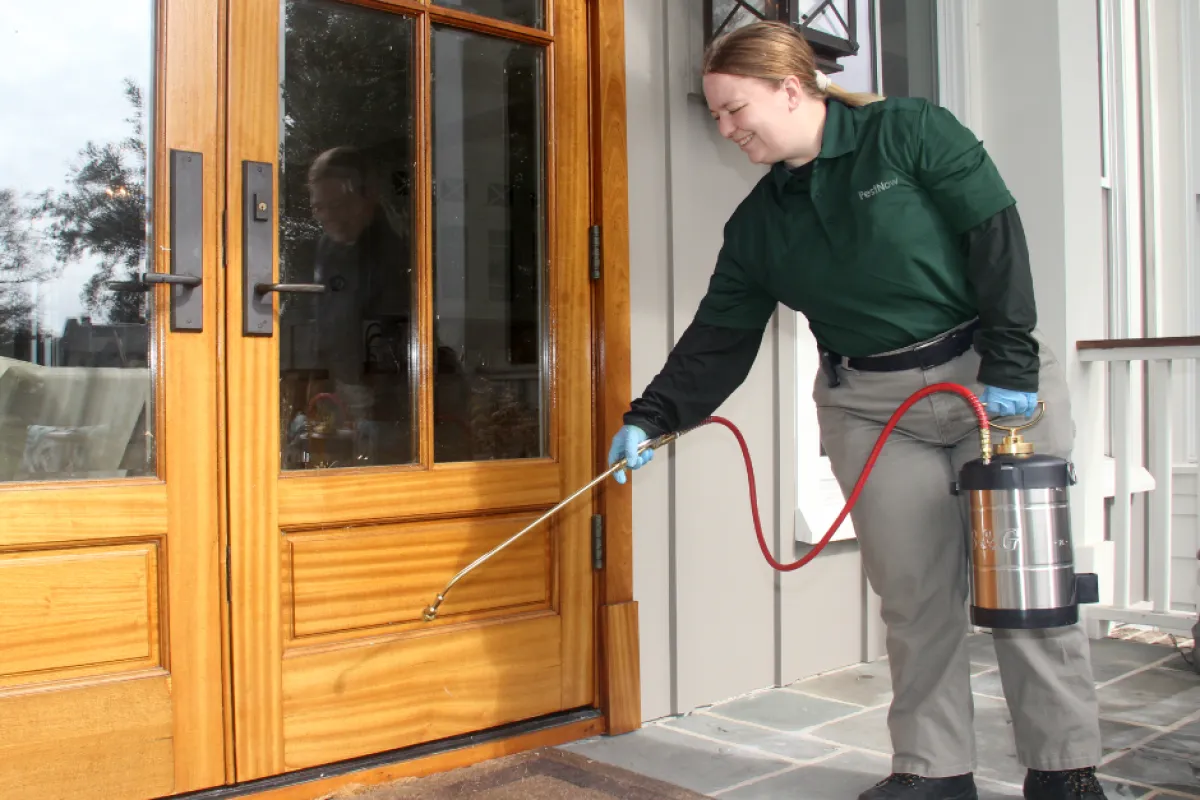Pest Control Services: Keeping Your Family Safe from Harmful Insects
Reveal the Relevance of Bug Control in Maintaining a Healthy And Balanced Atmosphere and Treatment Methods

The Function of Parasites in Communities
Parasites, typically seen solely as annoyances, play a complex role in environments that is vital for preserving eco-friendly balance. They add substantially to numerous ecological processes, consisting of pollination, nutrient cycling, and bug control. Several insect species, such as butterflies and bees, are necessary pollinators for a vast range of plants, which in turn sustains biodiversity and food production.
Furthermore, bugs offer as target for countless predators, creating an important web link in food internet. This interdependence makes certain the survival of various species and helps regulate populations within environments (Termite treatment Port Charlotte). Additionally, decomposer insects, such as specific beetles and fungi, contribute in breaking down organic matter, thus enriching soil and assisting in nutrition recycling.
On the other hand, while bugs can be useful, their overpopulation or invasion into non-native environments may interfere with these eco-friendly functions. This complexity emphasizes the relevance of comprehending insect dynamics, as reliable parasite administration techniques must take into consideration both their eco-friendly functions and potential influences on human tasks. Balancing pest visibility while decreasing damage is vital for preserving the honesty of environments and making sure agricultural performance.
Health And Wellness Risks Connected With Insects
The visibility of bugs in various settings expands beyond their eco-friendly roles, as they additionally position substantial wellness risks to human beings and animals. Many bugs, including pests, parasites, and rodents, are service providers of illness that can have significant wellness implications. For example, rats are known to transfer hantavirus and leptospirosis, both of which can bring about severe breathing and kidney concerns, respectively.
Pests such as ticks and mosquitoes are notorious for spreading out vector-borne conditions like malaria, dengue fever, and Lyme illness. These health problems can cause high morbidity and mortality rates, especially in prone populaces. In addition, pests like vermins and cockroaches can exacerbate allergies and asthma, adding to breathing troubles in people, especially those with pre-existing problems.
Furthermore, the presence of insects can result in mental anxiety and pain, affecting general health. Contamination of food and surfaces by insect droppings and continues to be can result in foodborne illnesses, highlighting the value of keeping hygienic problems. Therefore, understanding the wellness threats related to bugs is critical in identifying the requirement of effective pest management approaches to guard animal and human health and wellness.

Benefits of Efficient Bug Control
Effective pest control is essential for maintaining a risk-free and healthy and balanced atmosphere, as it emergency pest control regularly mitigates the countless threats linked with pest problems. One of the main benefits of efficient pest monitoring is the reduction of wellness dangers.
Additionally, efficient pest control safeguards property and frameworks from damage. Lots of pests, like termites and woodworker ants, can cause considerable structural damages that might require pricey repair work. By proactively taking care of these businesses, infestations and house owners can shield their investments.
One more considerable benefit is the improvement of overall lifestyle. A pest-free setting adds to mental well-being and minimizes stress related to invasions. Moreover, reliable parasite control fosters a much safer atmosphere for animals and youngsters, guaranteeing that homes continue to be sanctuaries devoid of dangerous chemicals and disease-causing microorganisms.
Typical Insect Control Techniques

In the world of insect management, various strategies are employed to battle invasions effectively. These methods can be broadly classified right into three major approaches: social, mechanical, and chemical controls.
Cultural control includes modifying methods to reduce insect survival, recreation, and establishment. This may consist of crop rotation, proper cleanliness, and environment manipulation, which jointly create an atmosphere much less conducive to pest expansion.
Mechanical control utilizes physical approaches to eliminate insects (Termite treatment Port Charlotte). Methods such as barriers, traps, and vacuums are commonly made use of to straight get rid of parasites from a location. This technique is specifically effective for managing rodents and insects without making use of hazardous chemicals
Chemical right here control includes the application of pesticides to take care of bugs. These materials can be categorized into fungicides, insecticides, and herbicides, each targeting specific kinds of parasites. It is critical to utilize these chemicals carefully, adhering to safety standards and guidelines to reduce potential injury to non-target varieties and the atmosphere.
Each pest control strategy has its limitations and benefits, and frequently, an integrated strategy incorporating several methods generates the most effective results in keeping a pest-free environment.
Lasting Bug Management Practices
Lasting bug management techniques include a variety of methods developed to decrease environmental influence while properly controlling bug populations. These methods focus on using eco-friendly approaches over chemical pesticides, thus lowering the danger signs of termites of injury to non-target species, consisting of valuable bugs, wild animals, and humans.
Integrated Bug Management (IPM) is a foundation of lasting practices, integrating organic, cultural, mechanical, and chemical techniques to manage parasites. For instance, biological control involves introducing all-natural killers or parasites to reduce parasite populations. Social practices, such as crop turning and polyculture, disrupt pest life process and boost community durability.
Mechanical approaches, such as traps or barriers, can properly prevent insect accessibility without chemical treatment. Additionally, maintaining healthy ecosystems through appropriate dirt monitoring, plant wellness, and biodiversity can normally minimize parasite problems.
Education and learning and understanding are crucial elements, empowering individuals and areas to identify pest risks early and apply safety nets. Termite treatment Port Charlotte. By fostering a holistic approach that stabilizes parasite control with environmental stability, sustainable insect management techniques not just secure frameworks and plants however likewise add to a healthier environment for future generations
Conclusion

Understanding the health threats associated with parasites is crucial in identifying the requirement of reliable bug management methods to protect animal and human health and wellness.
Reliable insect control is essential for preserving a healthy and balanced and risk-free environment, as it constantly minimizes the various threats associated with bug infestations.Integrated Insect Monitoring (IPM) is a cornerstone of lasting techniques, combining organic, social, mechanical, and chemical strategies to handle parasites. By understanding the function of parasites, recognizing connected wellness risks, and utilizing varied treatment techniques, a sustainable strategy to pest management can be achieved. Integrated Bug Management (IPM) stresses an alternative methodology that mitigates harm to valuable microorganisms while effectively controlling insect populaces.